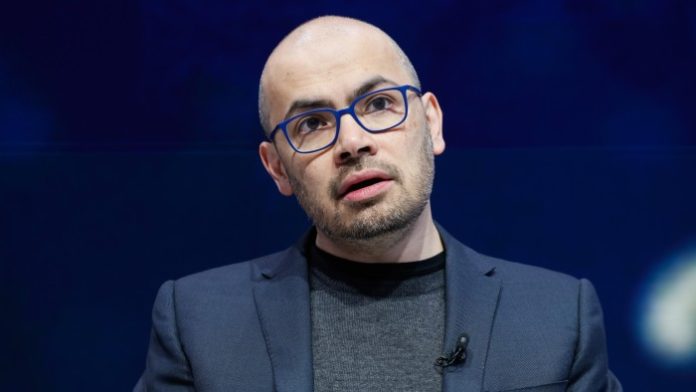Unlock the Editor’s Digest for free
Editor of the FT, selects her favourite stories in this weekly newsletter.
Isomorphic Labs, the drug discovery start-up spun out of Google’s DeepMind artificial intelligence unit, has raised $600mn in its first external funding round, as investors bet on the potential for AI to “solve disease”.
The fundraising for the London-based group, whose chief executive is Nobel Prize winner Sir Demis Hassabis, was led by Thrive Capital, the New York-based investor that is also among the biggest backers of ChatGPT maker OpenAI.
The round, announced on Monday, was also joined by GV, the venture capital arm of Alphabet, Google’s parent company. It also included further investment from Alphabet.
Further financial details, such as Isomorphic Labs’ valuation and its new ownership structure, were not revealed. However, Alphabet remains the majority shareholder.
The fundraising is among the biggest yet for a UK AI company, providing a financial boost as Hassabis pushes to have drugs designed by AI in clinical trials by the end of the year.
“This funding will further turbocharge the development of our next-generation AI drug design engine, help us advance our own programmes into clinical development and is a significant step forward towards our mission of one day solving all disease with the help of AI,” he said.
The company said the investment would help accelerate AI research and development in drug design and would allow the company to expand its team.
“We believe Isomorphic has earned a rare position to define a new age of drug discovery and design, and we are deeply inspired by their mission and the extraordinary progress they have made to date,” said Josh Kushner, founder and chief executive of Thrive Capital.
Isomorphic Labs was spun out from DeepMind in 2021 and has since partnered with large pharmaceutical companies, such as Novartis and Eli Lilly, which are keen to cut costs and develop drugs faster.
In May last year, DeepMind unveiled AlphaFold 3, an AI model that can predict the structures of genetic code DNA and RNA, as well as ligands, which are molecules that bind to others and that can be important markers of disease. Isomorphic Labs’ researchers use the tool as well as proprietary AI models to run predictions and simulate drug development.
In the company’s first year of full operations in 2023, it reported losses of £60mn, up from £17mn a year earlier, according to its latest accounts filed at Companies House. Isomorphic Labs also reported that it had grown its R&D costs to £49mn from £12mn, and tripled its staff costs to £20mn with a headcount of 71.
Hassabis, who jointly received the Nobel Prize for chemistry last October for developing AlphaFold, an AI tool that can predict the structure of proteins, said on LinkedIn: “I’ve long felt that improving human health is the most important thing we can do with AI and today marks a big step towards a new era of drug discovery.”






